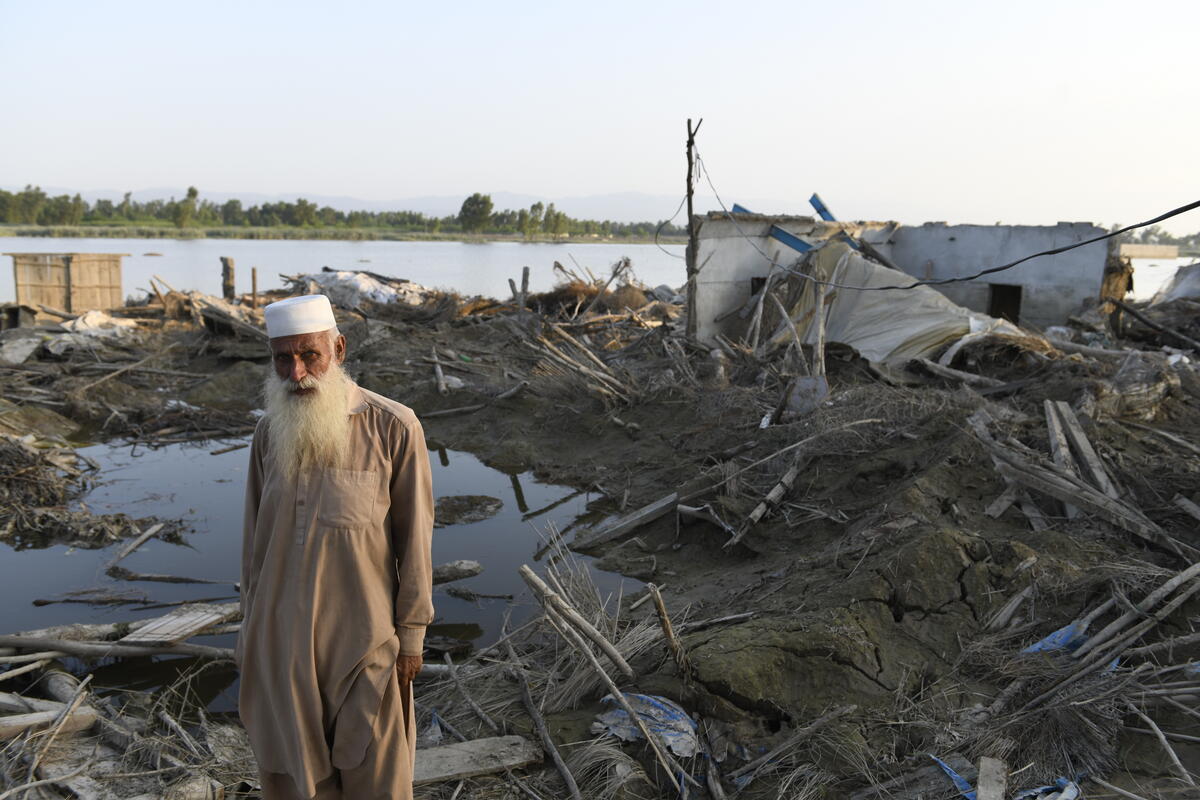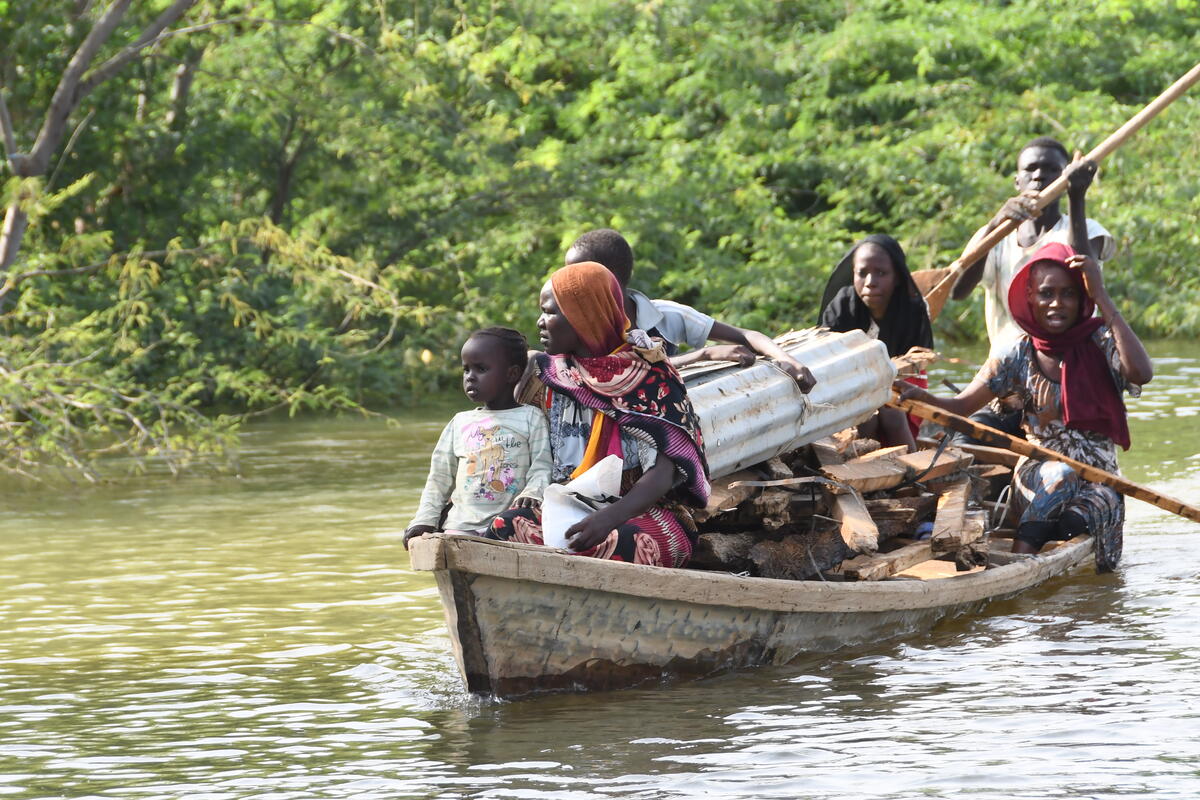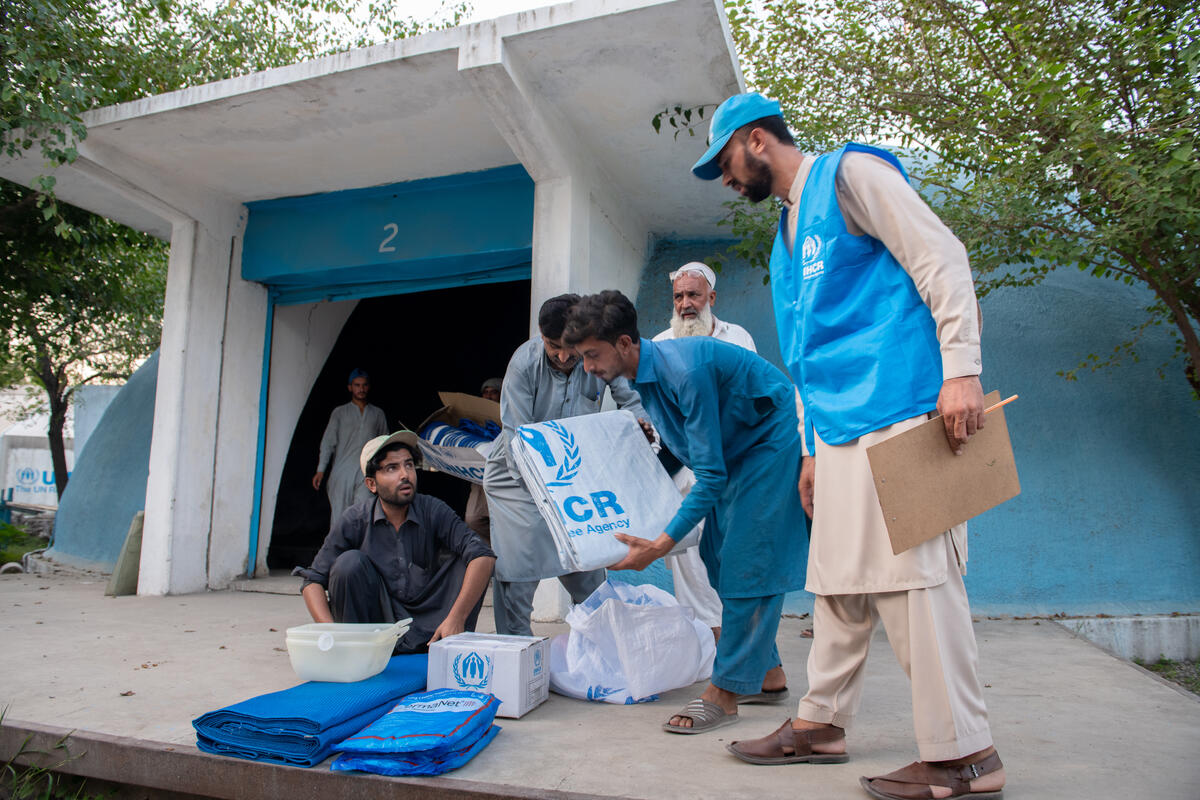UNHCR Malawi helps flood victims to rebuild shattered lives
UNHCR Malawi helps flood victims to rebuild shattered lives

LILONGWE, Malawi, July 22, UNHCR - The floods, when they came, came without warning. They were Malawi's worst in 20 years, sweeping through 15 districts in January 2015 and forcing 174,000 people to flee their homes. Sixty-two people were killed and thousands more risked disease.
Now, thanks to nearly US $600,000 from a special UN emergency fund, UNHCR Malawi has given affected populations a chance to rebuild their lives.
The UN's Central Emergency Response Fund (CERF) has enabled UNHCR Malawi to provide core relief items to 8,120 households in the worst-hit districts of Machinga, Zomba, Mulanje and Phalombe.
Between May 24 and June 4 this year, kitchen sets, blankets, sleeping mats and insecticide-treated mosquito nets were distributed to thankful locals.
Women were particularly excited by the kitchen sets, having had to try and find work to raise money to buy cooking pots, plates, cups, and other household items lost in the floods.
"I was going to sell sand, but now I do not have to," one woman told UNHCR. "It would take me a very long time to recover the lost items, but this has now changed, thanks to UNHCR."
Men, too, were grateful for UNHCR's help. "The blankets and mats are just what we needed to pull through this bad weather," said one male recipient. "And the mosquito nets will safe guard against malaria."
Dominic Mwandira, the Director of Administration in Machinga District, received the relief items on behalf of community leaders. He thanked UNHCR for the life-saving gesture, which he said would ensure that the people of Malawi cope and recover better.
Items were handed over by Rose Eyoru, UNHCR's Associate Programme Officer, who thanked the government and people of Malawi for providing a safe asylum space to some 17,000 refugees and asylum seekers. She also passed on a message from George Kuchio, UNHCR's Malawi representative, saying: "The people of Malawi and the persons of concern have a lot to learn from each other in terms of culture, skills and experiences which are mutually rewarding."
Today, many people are looking forward to a better future thanks to UNHCR's help. "We can now sleep more comfortably and reduce health centre visits," one man concluded. UNHCR Malawi was happy to show solidarity with the government and people of Malawi - and hence improve relations."
Local leaders aware of UNHCR's role in protecting refugees, had urged the agency to provide similar help for the displaced flood victims.
By Rose Eyoru, Malawi









